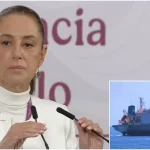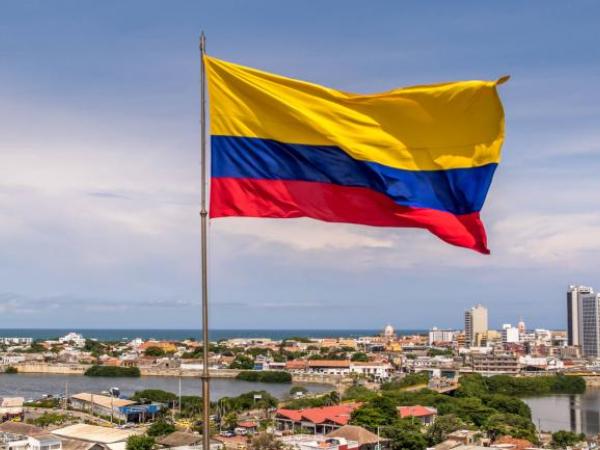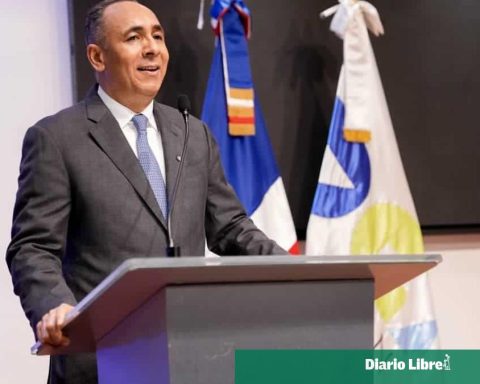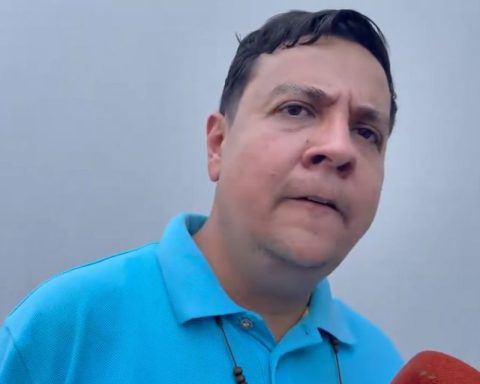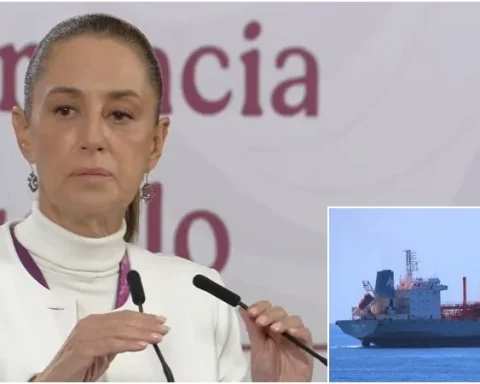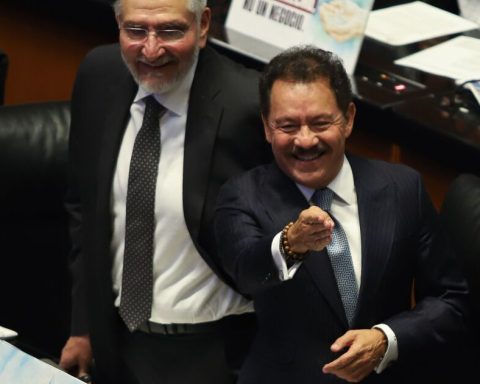10After a process riddled with complexities, pressures, ideological disputes, and constant disagreements between the citizens and those who were elected to translate these social demands into a new Fundamental Charter, the political class was pressured and forced to force a constitutional agreement that, according to warnings, some pro-government voices, did not leave any sector satisfied, and left the impression of what precisely the social outbreak of 2019 harshly judged and questioned: that policy that is decided between four walls, with parties disconnected from reality, imposing terms and changing the rules of the game, at will.
Precisely, a diagnosis of this nature is the one made by the vice president of the Chamber of Deputies and Deputies, Catalina Pérez, who referred to an agreement that, more than presenting the initial outlines of the process, also outlined the form and substance, agreeing to a large part of future work. In this regard, the parliamentarian of the Democratic Revolution (DR) recognized that the triumph of the Rejection in the last plebiscite on September 4 forced the ruling party to reaffirm its convictions of change, urging them to design a process under different conditions from the agreement of November 15 , the one who assumes, was much closer to the claims of the government alliance, a sector that has had to give in to the empowerment of a right that now seeks to impose its own terms.
In this context, the vice president of the Chamber assumes that the country is going through a moment of “political inflection”, where the traditional parties are undergoing different restructuring processes, a phenomenon that the parliamentarian recognizes in opposition sectors such as the DC, or the emergence of new spaces of representation such as the PDG or the Republican Party. But in addition, Pérez also recognizes the same in an officialism that is also reordering, regarding, for example, the recent exodus of more than 50 Comunes militants, led by deputy Emilia Schneider, towards Social Convergence, and that refloated the old idea of a single party in the Broad Front.
-Deputy, is the constituent agreement a reason to celebrate in the ruling party? What is the feeling of your sector regarding this process? Is there disagreement with the form and substance of this discussion?
-There is a bitter taste regarding the process, but there is also the conviction that Chile deserves a new Constitution, and sharing both ideas has been somewhat difficult, very much in keeping with the political moment we are experiencing, after a plebiscite on September 4 that For us, it reaffirms the convictions of change, plus it forces us to design a process under different conditions than the process we designed on November 15. And we do it with the conviction that keeping the possibility of transforming Chile open requires also having a new Constitution that enables democratic debate, that manages to be capable of leading the processes of change in Chile in the 21st century, and not being a shirt of force for the transformations, as is the current Constitution of 1980.
-Don’t you think that there has not been enough self-criticism on the part of the ruling party and the progressive forces, around the failed Convention and the failure in the plebiscite on September 4? What are the aspects that were done wrong by your sector, which allowed the empowerment of the right after the triumph of the Rejection?
-I think that Chile lives in a moment of political inflection, which is very characterized by a desire to dismiss rather than establish. I believe that there is a huge political crisis of representation, which means that even those who have been called and elected to constitute a constitutional proposal that reflects a different Chile, are also dismissed in that process, in a cycle of great mistrust.
In that sense, I think that, of course, much more could have been done, in terms of linking the urgencies of the citizenry and the new Constitution as a concrete response to them, in terms of public conversation, but I also think that the result It is due to this political diagnosis of this societal State that we have in Chile, and it is something that I think we have to take charge of in order to face this new constitutional opportunity that ends up opening up, not in the terms in which we would have liked, but in the terms in which it was possible, given the correlation of forces that exists at the institutional level and the absence of social pressure, at the level of the streets in our country, which add up to a complex equation for progressive forces and for change.
-You refer to minimum civilizations that should be the foundation of the new constitutional proposal. Are aspects of the previous failed process in question, such as parity or representation of native peoples in the drafting body? Are they elements that put pressure on the official internal debate?
-It is relevant to diagnose which floor we are standing on today, compared to the floor we were standing on yesterday, and having a critical evaluation of the conditions of the new agreement, which we like much less than that of November 15 that we defended with such conviction Also today the political conversation or from where it starts thanks to the mobilization, also offers different civilizational minimums, and there parity, the participation of native peoples or the social and democratic State of Law, are less in question.
-In that sense, how do you think it is possible to give certainty about the continuity of a constituent process, in the context of a political system in crisis? What is your view on this?I think another phenomenon has to do with the reordering of political forces, which I believe occurs on a full scale. In other words, today the crisis that exists in the Christian Democracy is an example of that, the recomposition of right-wing parties, the emergence of Republicans or Team Patriota, or also the restructuring in progressivism or in the government alliance, which today it is constituted as a unique alliance, beyond the diversity it represents. So, there is a re-articulation and rearmament of political actors, which I also believe is another symptom of this moment of political inflection that we are experiencing in Chile, characterized by the emergence of new actors, the generation of populist discourses, the questioning of of civilizational minimums, and this spirit of social destitution and maintenance of a political, democratic and representation crisis of which we have to take charge.
-How do you see the restructuring of your own sector, knowing, for example, the recent flight of more than 50 Comunes militants towards Social Convergence- led by the deputy Emilia Schneider-, and assuming possible new alliances within the Government? Could said restructuring negatively influence the leadership of the President and the continuity of the constitutional path?
-I think that the challenge of delivering certainties and assurances is an effort that should be led by the Government and the President as Head of State, but I believe that it is a responsibility of all democratic forces. And in this need to deliver certainties and certainties, there is also a transformative vocation that is represented in the role that the Government fulfills, but also in the moment that our democracy lives, in how we are capable of generating a new political cycle in Chile, from the spaces of representation, understanding it as a mechanism for the transformation of realities, within the framework of many uncertainties.
How politics manages to give certainty, in a moment of uncertainty, I think is the great challenge that the various forces of representation have, also forced to a new rearticulation, to a rearmament or revision of the very foundations within the parties and within various public institutions.
-Now, and regarding the anti-corruption agenda that you as a bench of the DR, with the support of other sectors, have promoted in the Chamber, how could you contribute projects such as the transparent municipality- which has the support of the Executive-, and to strengthen the control capacities of the Comptroller’s Office, to avoid cases such as that of the former mayor of Vitacura, Raúl Torrealba?
I believe that the case of the former mayor of RN Raúl Torrealba is very illustrative of what is happening today in many municipalities in the country, only that it turns out to be at scandalous levels, where the precedents that have been known show how mechanisms and dynamics to defraud, and as control instances, either due to lack of competences or other reasons, they have not managed to stop it. And there I believe that Congress should take that post and take care of strengthening the measures against corruption (…) Today we need the parties to have statements against this and we need the National Congress to improve the legislation in order to prevent cases like the ones that today day we are seeing
-Finally, is part of your concern that the parties assume greater responsibility when it comes to sanctioning their militants who have been dotted with acts of corruption? Does it seem ethical to you that, for example, in the recent election of the National Prosecutor in the Senate, one of the UDI spokespersons is Senator Iván Moreira, who was charged – and later dismissed – for providing ideologically false ballots, in the framework of the Penta Case?
-I consider it extremely complex when we have parliamentarians who have been convicted of corruption cases, where these parliamentarians also have a role to play when defining, for example, the next National Prosecutor. When we have elements like that, finally what gets muddy is trust in the institutions, and the National Congress has not been up to the task, and when, furthermore, there is no political and moral sanction from fellow parliamentarians or from the parties to what these figures represent, the severity increases, because it increases the feeling of complicity and also the feeling of disaffection on the part of the citizenry, of these processes. There are several names that we have known in similar conditions: Moreira, Zalaquett, Jovino Novoa, Jaime Orpis, to name a few people with political affinity, and whose organizations do not sanction their actions.










